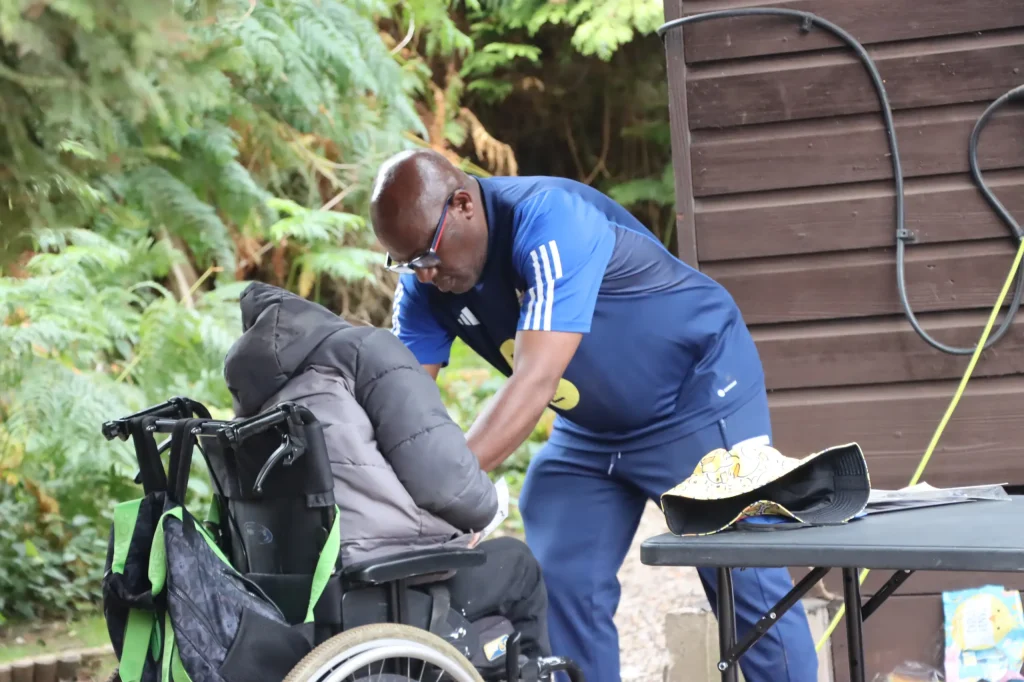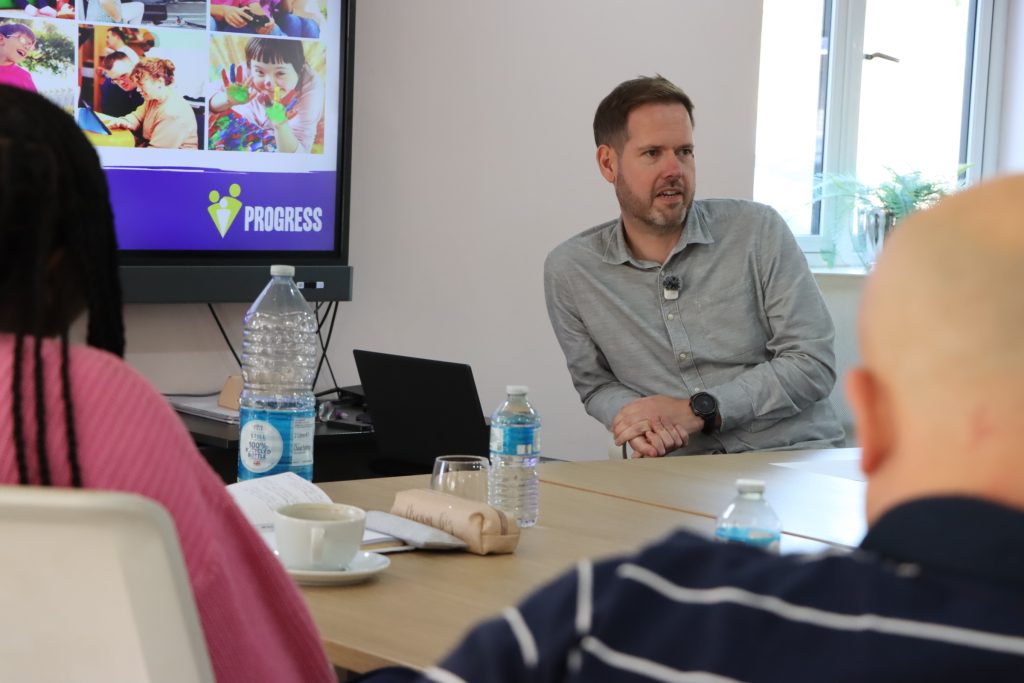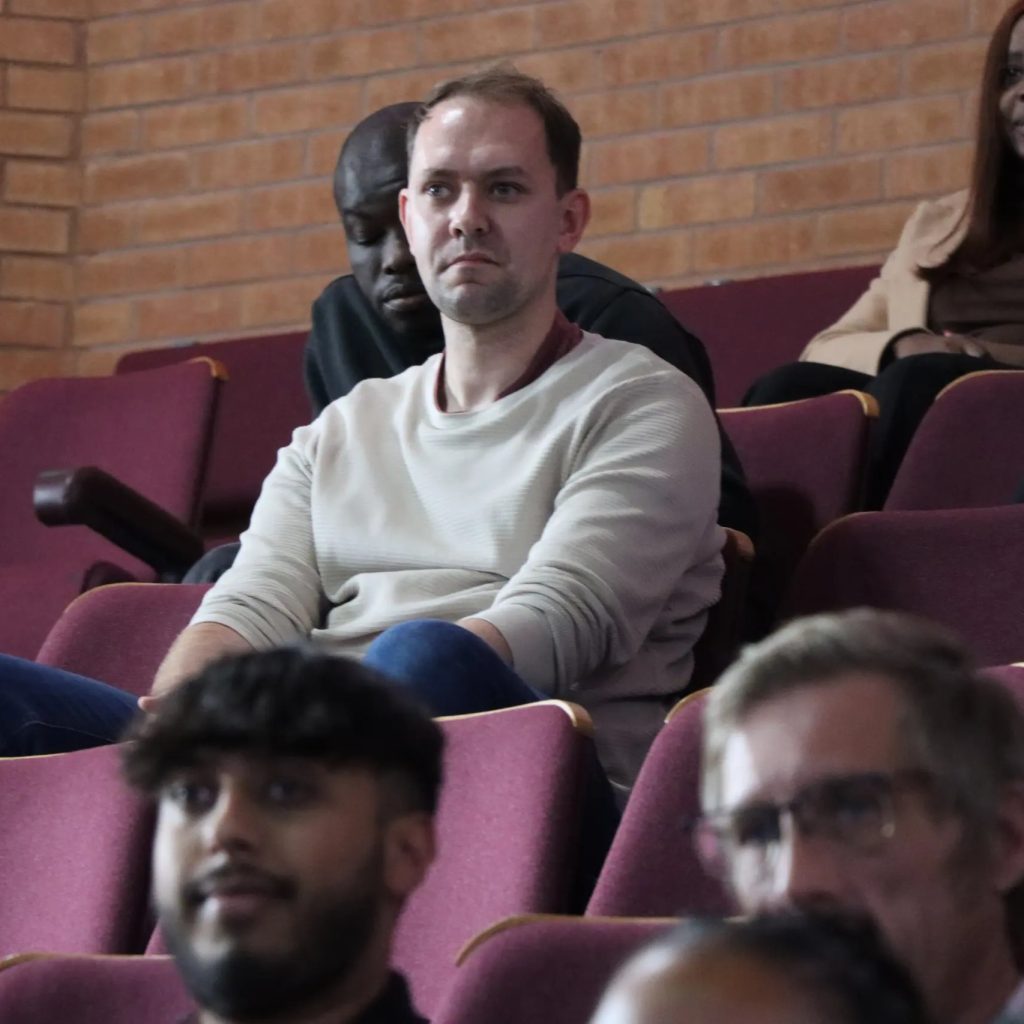The Quiet Power of Male Role Models in Care
Sometimes, the gentlest transformations happen in the smallest moments. A drive through a quiet countryside, a familiar face at the doorway, or a manager remembering what first made him fall in love with care.
2025 Progress Summer BBQ was winding down when Cosmos and Josh finally found a moment to breathe and to talk to me. Children were still laughing across the field; staff huddled with them in small circles and the outdoor natural light softened everything it touched. On the sidelines, away from the DJ’s music and the crowds, the two managers slipped easily into the kind of conversation that only happens between people shaped by the same calling.
Both men lead children’s homes — Progress’ Portland House and Hilton House. Both began as support workers. Both carry the quiet resilience that frontline care teaches. In very different ways, they represent the heart of what International Men’s Day means at Progress: presence, steadiness, tenderness and growth.
For Josh, this summer was a return to something he did not realise he had missed. Hilton House had planned a holiday for all the children. Five young people, one big countryside house and a week carved out of routine. Last year they tried the beach. This year they wanted something softer, something green, something that offered breathing space.
“It was peaceful,” he recalled. “Quiet. Safe. Just right for the kids.”
Preparation became a project of its own. Staff who were not attending still played their part by creating visual aids, drafting social stories, mapping risks and planning activities. Josh found himself doing things he had not done in years. He wrote activity timetables, stepped back into direct risk assessments, went on supply runs and even took charge of the barbecue night. The excitement of the children pulled him instantly back into the rhythm he once knew so well.
The holiday gave him something he did not expect. It reminded him why the work matters. He learned new things about every child, small things and emotional things that only surface when daily life slows down. A farm adventure on the final day revealed unexpected joys, sensory experiences and honest curiosity.
“It refreshed everything,” he said. “And it helps the care plans because you come back with a better understanding. But it also just felt good. Away from the laptop. Back to where we started.”
For Cosmos, the summer carried a different kind of intensity. He had been splitting his time between Portland House and supporting a young person in Coventry who was transitioning into adult provision. The process was gentle and deliberate. Staff from the adult service visited three times a week so that the young person could see familiar faces rather than strangers on their first day in a new service.
“Sometimes they need to see the person who will be there for them,” Cosmos explained. “It is not just about observing. It is about connection.”
He was also preparing for his own upcoming holiday with a young person who rarely gets to leave the home or see family. Museums, aircraft and fire engines were on the itinerary. All the things that light up this young person’s world.
“It is rewarding,” he said softly. “When you take them somewhere new and watch their world grow a little.”

The changing shape of leadership
Both men admitted that management reshapes your relationship with the work. Where they once spent long hours on activities, their roles now involve oversight, planning, safety and systems. Those responsibilities matter deeply but they also create distance from the spontaneous moments that first anchored them in care.
“When we were support workers, we were in it,” Cosmos reflected. “Now you have to think like a manager. You do not lose your love for the children, but you lose some of those moments.”
This summer gave both of them a chance to reconnect with the parts of the job that first captured their hearts.
Across Progress and the wider care sector, women form the majority of the workforce. Male staff are fewer and male managers fewer still. Yet for many children, a positive and gentle male presence plays a vital role in their healing.
Josh has seen how rare that presence can be in the lives of the children he supports.
“For some of them, they have not had many male figures,” he said. “Us being there makes a difference.”
Cosmos agreed. He sees the potential in male staff, sometimes bright, sometimes untapped and sometimes buried beneath comfort.
“We have strong male staff,” he said. “But not all of them believe they can progress. Some do not see themselves in leadership because they have not seen enough of us in those positions.”
Visibility matters. Representation matters. Not through symbolism but through steady reassurance that tells others they belong in these roles too.
Neither manager planned to work in care. One studied music. One simply needed a job after university. One applied for a role without realising it was a care job at all. But somewhere between agency shifts, shared notes, late-night conversations, behaviour support, school runs and small victories, purpose found them.
And they stayed.
They grew.
They now lead.

What they hope for the future
What they want most is for more men to see themselves in this sector. Not as placeholders or task-doers, but as nurturers, protectors, connectors and leaders.
“People do not always think long-term anymore,” Cosmos said. “But care gives you more than a paycheck. It gives you room to grow.”
Josh added another hope.
“People come from all kinds of backgrounds. If they give this work a chance, they might find what we found.”
As the sun slipped behind the trees at the Summer BBQ, Cosmos and Josh settled into the easy rhythm of two colleagues who have walked the same long road. They came into the sector at the same time, learned together, climbed together and held the joy and exhaustion of the work side by side.
Their stories are unpolished in the best way. They reflect the quiet strength men bring to care. Not through noise or bravado but through presence, steady hands and the willingness to show up where it matters most.
For the children supported at Progress, that presence can reshape the world.
To Cos, Josh, and all the men of Progress, Happy International Men’s Day.





